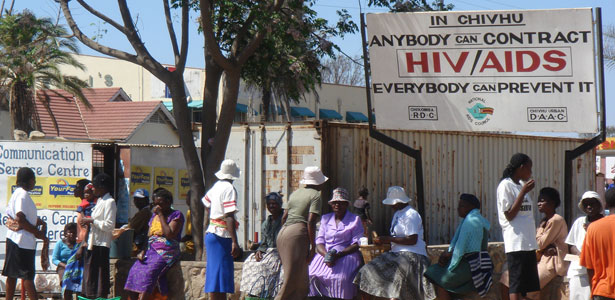By Wendy Muperi
HARARE – At least 11 000 people have not collected their results out of the 196 000 people who were tested for HIV last year, a government official has revealed.

Owen Mugurungi, director of Aids and TB Unit in the Health and Child Care ministry, noted with concern that many Zimbabweans were still not comfortable knowing their HIV status.
This comes as at least 40 000 Zimbabweans are voluntarily seeking HIV testing services on a monthly basis.
Mugurungi, however, said while the uptake is commendable, more needs to be done if Zimbabwe is to win the battle against Aids.
“Through the New Start Centres and mobile outreach, an average 40 000 clients are tested monthly,” Mugurungi said.
“HIV testing and counselling is the entry point to prevention, treatment, care and support. We need to scale up of HTC (HIV testing and counselling) and increase access of services even among the hard to reach areas, build capacity to deliver the service.”
Zimbabwe uses two testing approaches, the provider initiated testing and counselling (PITC) and client initiated testing and counselling (CITC).
CITC is provided in 17 New Start HIV testing centres while the PITC programme is available in 1 445 health institutions.
Government aims to increase the percentage of Zimbabweans who know their HIV status from the current 58 percent to 85 percent by 2015.
At present, 1, 2 million Zimbabweans are living with the virus while half the number is on treatment.
Experts are emphasising the need to strengthen HIV prevention strategies and bring down new infections, currently standing at 57 000 annually.
Mugurungi said HTC is a critical aspect in lowering the high HIV related illnesses and deaths in Zimbabwe.
“We need to increase awareness to communities on importance of knowing your status as an individual, couples, family, including children, adolescence and youths.
“Through early diagnosis leading to early access to care, treatment and support for both those tested HIV positive and negative, morbidity and mortality can be reduced,” he said in a report at the Zimbabwe Lawyers for Human Rights (ZLHR) annual symposium on HIV and the Law last week.
The country is set to introduce HIV self-test kits to complement institutionalised services in the near future. It is hoped that the new test kit will be an essential component in the bid to achieve national targets. Daily News






